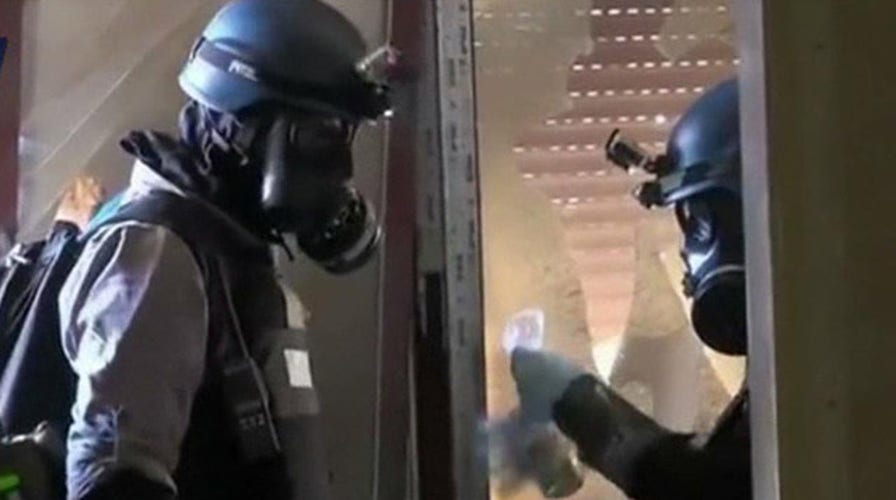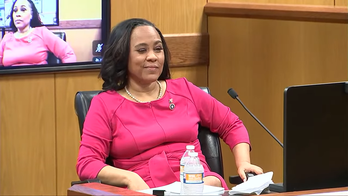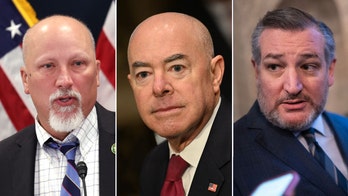Secretary of State John Kerry and his British and French counterparts would not say Monday whether a new U.N. resolution on Syria will threaten military force should the Assad regime not comply with a deal to turn over its chemical weapons, despite an official U.N. report showing "convincing evidence" the weapons were used.
The long-awaited U.N. report, based on chemical and medical samples as well as interviews, concluded that chemical weapons have been used on a "relatively large scale" in Syria. The report said "surface-to-surface rockets" were used to launch the sarin gas attacks.
While the U.N. report did not assign blame, U.S. and British diplomats said the report makes clear that the Assad government was behind the attack.
"The technical details of the U.N. report make clear that only the regime could have carried out this large scale chemical weapons attack," U.S. Ambassador to the U.N. Samantha Power said Monday, calling this the "largest chemical weapons attack in 25 years."
Amid the additional evidence, it remains unclear how the international community will enforce a U.S.-Russia-backed deal announced over the weekend for Syria to turn over its chemical weapons to international control.
Top diplomats working on a U.N. Security Council resolution referred to "serious consequences" if Assad runs afoul of the agreement.
But the only specific the officials gave was that there would be "sanctions."
Western officials have been hesitant to endorse the threat of military action in any Security Council resolution because Russia has threatened to oppose such a provision.
White House Press Secretary Jay Carney, though, made clear that the U.S. would keep the threat of unilateral U.S. military action on the table. Kerry also said that "should diplomacy fail, the military option is still on the table."
At the U.N. level, Carney said, "We obviously want the strongest possible enforcement measures ... but the specifics are still being negotiated."
As sanctions did not deter Assad from prior attacks, some are skeptical that the deal will truly achieve the destruction of Assad's chemical weapons.
"I think this agreement is likely to fall apart simply in its implementation," former U.S. ambassador to the U.N. John Bolton told Fox News, predicting the Syrian government would not "completely and accurately" declare its weapons.
He cited reports that Assad is already moving chemical weapons to Lebanon and Iraq, saying he's got "plenty of time" to hide some of those weapons.
Rep. Eliot Engel, D-N.Y., top Democrat on the House Foreign Affairs Committee, said the U.N. report shows chemical weapons were used on a "massive scale" last month and urged the Security Council to act.
"If anything, the report underscores the urgency and importance of expeditiously removing Assad's stocks of chemical weapons," he said in a statement. "I call upon the U.N. Security Council to act without delay to adopt a strong resolution mandating that Assad give up his chemical weapons and imposing strong penalties if the regime refuses to comply."





